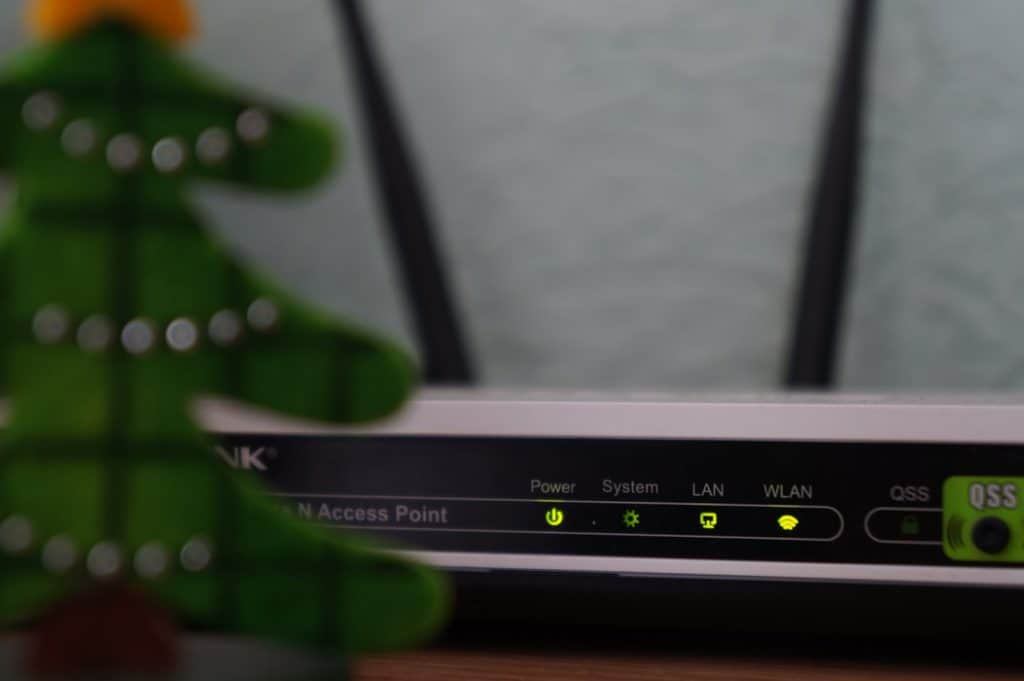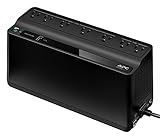Best Battery Backup for a WiFi Router
- By Douglas Moore
- April 23, 2020
Disclosure: As a member of the Amazon Associates program, we earn from qualifying purchases. Some links in this guide are affiliate links. We may get paid if you buy something or take an action after clicking one of these links, at no additional cost to you. It’s how we fund the work that it takes for us to create and maintain these guides.
Table of Contents
When you suddenly lose electricity due to a blackout, brownout, spike, voltage dip, or any sort of fluctuation or power failure, you risk losing valuable data on your computer software. As a sudden voltage dip doesn’t give your PC enough time to back up important files, you may end up losing work you didn’t save. Plus, if your PC is subject to frequent sudden shutdowns, it may end up developing other software and hardware problems.
That’s why a backup battery, also known as uninterruptible power supply (UPS) is a very useful tool for “bridging the gap” between the loss of electricity and a new source of power. In some cases, a UPS can power your PC until the electricity is back on, or a standby generator kicks in. In other cases, it will give you just enough time to save your work and safely shut down your computer.
Okay, so we know how important it is to backup computer hardware. But you might not know that the same goes for WiFi routers. Having a battery backup for your router is often a really good idea. In this article, we’ll look at why and how you should use a UPS for your WiFi router.
What is a Battery Backup or UPS?
A battery backup, also known as Uninterruptible Power Supply (UPS), provides electronics in your home with a dedicated battery during power fluctuations or failures in your home or office. UPSs basically provide a backup power source for the various crucial desktop computer hardware components.
Most often, the main hardware components that are hooked up to backup batteries are the computer and the monitor. However, if you have a bigger and more powerful UPS, or multiple UPSs, you can plug in more devices to these backup batteries.
We already mentioned that one of the main reasons for using backup batteries is not losing unsaved data or causing damage to the software from sudden shutdowns. However, fluctuations in electricity can also cause problems with the computer hardware. When the electricity flow that a PC is running on isn’t consistent, it can and usually does end up causing permanent damage to the computer hardware, too.
That’s why UPS systems are often recommended for computer hardware – they not only ensure that your PC won’t suddenly shut down, but also ensure that it gets a consistent and clean supply of electrical current, avoiding any possible damage.
So the question arises – why should you also use a battery backup for your router?
Why You Should Use UPS for Your WiFi Router
Although routers don’t have moving parts, they are still as prone to hardware damage from sudden electricity surges and drops. Especially if you’ve spent several hundred dollars for a high-quality WiFi router, it’s a shame to have to replace it due to sudden electricity spikes or cuts. And the same goes for your modem – so you should use battery backups for both your WiFi router and your internet modem if they’re two separate devices.

Another reason why you should use a battery backup for your router and modem is to stay connected to the internet. If you mostly use your computer for work online – which most of us do – having a running PC without an internet connection is not very practical. So to be able to keep working until the power is back on or a backup generator is activated, you should also have your router and modem plugged into a UPS.
While bigger UPSs can support multiple devices, this will cause them to run out of battery sooner. So, the best thing you can do is get an additional battery backup for your WiFi router and modem.
Plugging in your modem and router to their own separate battery backup will ensure they stay safe from hardware damage, and allow you to keep working online long after the power goes out.
How To Use a Battery Backup for a WiFi Router
You should place the battery backup device between the electrical outlet on your wall, and the hardware that it’s hooked up to. So in this case, your battery backup would be placed between the outlet and your router and modem.
Basically, your router and modem should be plugged into the battery backup, and the battery backup should be plugged into the wall. That allows them to not only supply power to these devices when the electricity is out, but also to provide a reliable stream of electricity, and control spikes or surges.
While battery backups come in different sizes, they are generally rectangular, freestanding boxes. UPS devices are generally quite heavy due to the large batteries that they house, so it’s safest to place them on the floor next to the socket.
As the batteries inside a UPS device are rechargeable and often replaceable, they’re a great long-term investment, which will keep your computer running and online.
Keep in mind that in order to protect your modem against surges that might come down the telephone line, you’ll need to choose a model that includes a port for a telephone cable as well.
Depending on your budget, you can choose from battery backups with different capacities of how long they can keep your router running. Additionally, some higher-end models include LCD screens that give you all the stats and estimations on remaining power and time.
A Few Words Before You Go…
Hopefully, you now have a better idea of how battery backups work and why it’s always a good idea to have your WiFi router plugged into a UPS. Now, you won’t have to worry about hardware damage due to electricity spikes or losing your internet connection when the power is out!
Here is a couple of UPS models that we recommend you check out:
Domain Name Sanity is a participant in the Amazon Services LLC Associates Program, an affiliate advertising program designed to provide a means for sites to earn advertising fees by advertising and linking to Amazon.com. As an Amazon Associate we earn from qualifying purchases. Amazon and the Amazon logo are trademarks of Amazon.com, Inc. or its affiliates.
Last updated on April 22, 2024. Pricing Information and Product Images obtained from Amazon Product Advertising API.
View Related Articles

Best WiFi Router for Long Range: Reviews of Our Top Picks for 2020
A WiFi router is the staple of most modern homes. It allows you to form a network of your local devices and connect them to the internet. The best wireless routers will allow multiple users and devices to simultaneously stream, work, or game online seamlessly, without interruptions or lags.

Best HDMI Switch: Reviews Of Our Top Picks For 2020
So you have a gaming console, a TV box, a computer, a Blu-ray player and a cable box, and they all use your TV’s HDMI switch. At some point, you’re bound to get sick of switching between cables every time you want to use the TV for a different purpose. Luckily, a single HDMI switch (or switcher) can solve the nuisance of constantly swapping and fumbling about with cables.

Best MoCA Adapter: Reviews Of Our Top Picks in 2020
Whether you’re an avid gamer, need high-speed internet for work, or simply have a full house that’s in dire need of reliable, fast internet for your home entertainment units, you’re one of many on the search for the Holy Grail of fast internet.

